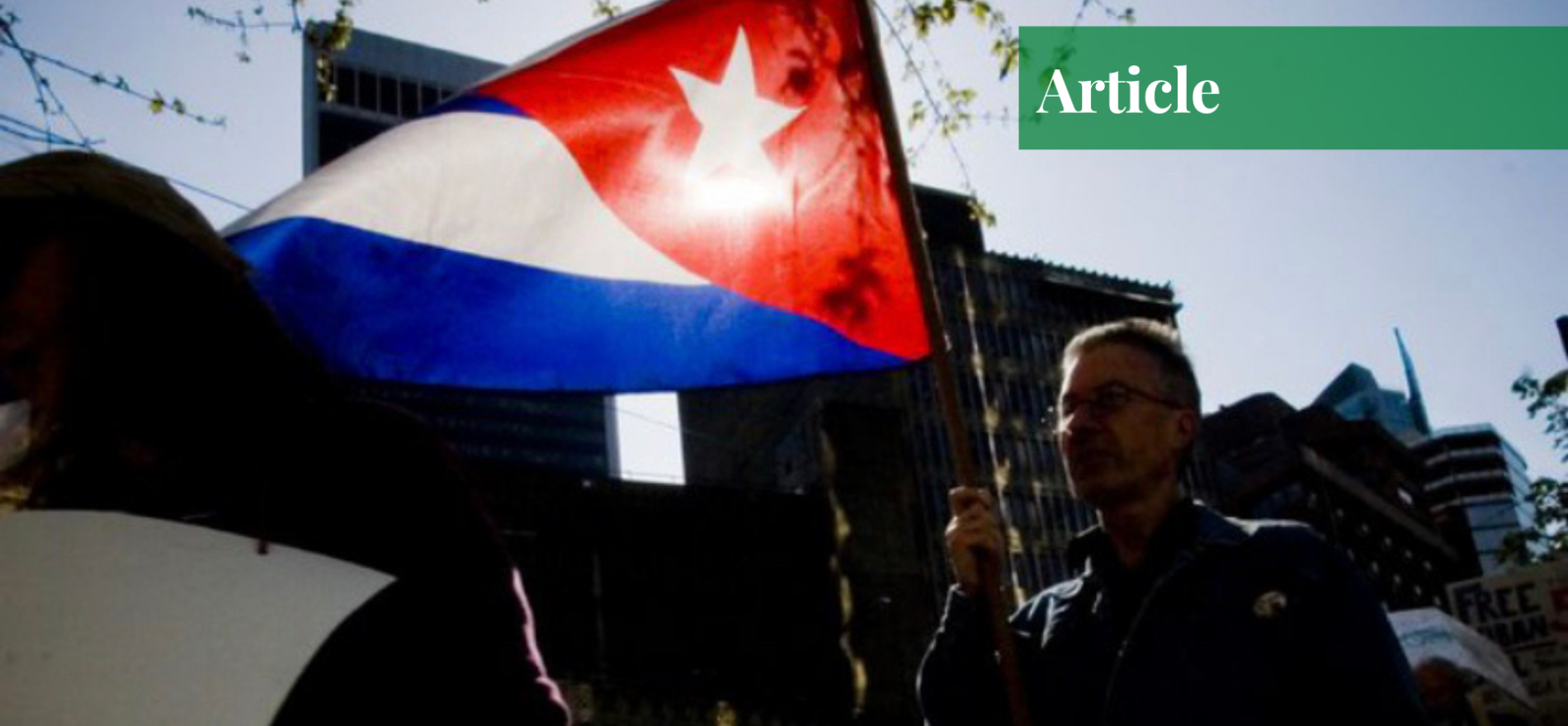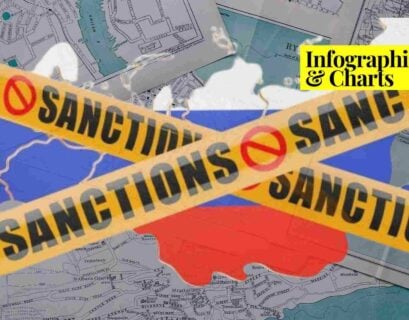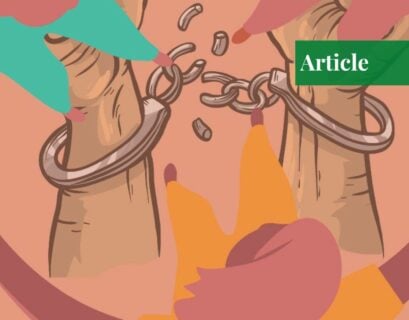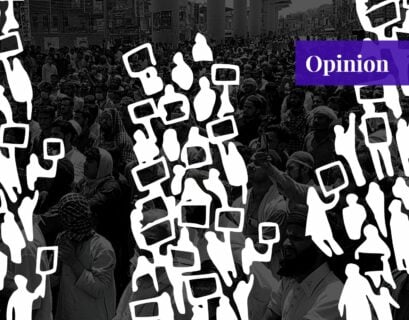Ms. Damiya Saghir completed her Bachelor's in Political Science from Kinnaird College and is currently pursuing her MPhil in Political Science from the same university. She is a Research Associate at the Maritime Centre of Excellence. Ms Damiya was previously employed as a project officer at the Pakistan Institute of Legislative Development and Transparency (PILDAT.) Her areas of interest include politics, defense studies, International Relations, and governance.
Castro’s Revolution
The island of Cuba survived the tide of capitalism during the Cold War through the support of the Soviet Union. To date there have been many crises in the state except nothing has been as colossal as the Fidel Castro revolution until the wave of protests in Cuba in 2021. The pandemic has made a mess in the world through different governance-related issues. Cuba, already facing the U.S economic embargo, food shortage, and electricity problems is topped up with medical resources and supplies, along with a declining economy due to the closure of tourism – one of the biggest economic industries on the island.
Fidel Castro’s revolution set a precedent for the future communist government in Cuba. In 1959, Cuba was run by the U.S-backed government of Fulgencio Batista, a former soldier. While the ideological spur was having a whirlwind in the entire world, Cuba was also deciding to either roll back or fall victim to the domino effect of democracy.

While the revolution challenged the very existence of the writ of the island state, the then president, Batista, fled the country, and Castro’s representatives took charge of the government. As a clashing democratic ideology, the US took a back seat in its relations with the newly formed government, bringing into force a trade embargo and travel restrictions that were imposed for a very long time. Only some of them were loosened during Barack Obama’s tenure.
The Cuban Protests
In July 2021, the Cuban government organized a protest in Havana against the US embargo which turned out to be an unprecedented rally. The rally was held as a response to the protests in Cuba that erupted amid widespread shortages of basic goods, demands for political rights, and the island nation’s worst coronavirus outbreak since the start of the pandemic.
While the government kept on blaming the US embargo for the difficulties faced by the people of the island, it also admitted some shortcomings of its own. After the 2021 protests first started in Cuba, the government mostly blamed the US-imposed sanctions for the destroyed living standards in the country.
The Failing Economy
The COVID-19 crisis has eviscerated tourism, cutting off a major source of income for Cubans who work in the industry and for the Cuban government. The negative impact on tourism is especially bad news right now when rising and falling commodity prices mean that the government needs to spend more to import food.
Remittances, a lifeline for struggling Cuban families, are estimated to amount to a total of $2 billion to $3 billion per year. After the former US president, Donald Trump, tightened restrictions on Cuban Americans sending money back to the island, annual remittances plunged. The pandemic has only served to further stifle the flow of remittances.
With the beginning of the Trump regime, the Cuban difficulties were made severe as the Trump administration limited the ability of US citizens to visit the island, canceled US cruise travel to Cuba, forced out the one US-run hotel on the island, cut off the billions of dollars in yearly remittances many Cuban Americans send back home, and returned Cuba to the list of countries that sponsor terrorism.
While the Cubans stumbled from the increased sanctions and their own increasingly circumspect government’s clampdown, the pandemic struck, increasing the horrors of day-to-day lives. The tourism industry came to a squealing halt as the island went into total lockdown and Cubans abroad could no longer send medicines and money through the people who ferry items into the island in suitcases.
With the devalued currency and rising cash crunch, the island became increasingly cash-strapped. In order to make a living, the government started to accept foreign currencies, including dollars, at stores. Food lines have become a daily ritual for the people of Cuba due to the increasing food shortages. Since people are wrapped around blocks and forced to flock, the number of coronavirus cases climbed higher and higher every day, leaving the people with the daring choice of either starving or risking their chances of infections.
What is Next for Cuba?
“Down with Dictatorship” and “Freedom” were among some of the chanted slogans that were raised by high-pitched voices in the 2021 protests in Cuba. The people of Cuba find themselves stuck on an island without any hope for change. Those who once supported the heroism of Fidel Castro have nothing more to look forward to in Cuba. Many of the residents are seeking refuge in other states. As many people are now taking part in the Cuban protests, it is important to ask what Cuba’s future will be.
In June 2021, the United Nations General Assembly called for a vote to lift the US embargo in Cuba. 183 states agreed to lift the ban and 2 voted in favor of the embargo. This sends a clear global picture that the global voices support the rights of the Cubans and their call for protests. However, if no pressure is exerted by the international community at all, there are chances of worse things happening in Cuba. It could lead to violence and bloodshed along with people dying out of hunger.
The communist regimes have governed Cuba for a long time but maybe it is time to step back and let private companies and stakeholders take shares in the economic sector. The 2021 protests in Cuba have achieved nothing so far except for bringing Cuba’s long-standing issues—which need to be addressed with extreme urgency—under the spotlight.
The UN has failed to help the people of Cuba and the current US government, under the leadership of President Joe Biden, has also not made any move forward with its stance. This shows that the battle of the Cuban people remains to be their own, unsupported by anyone. The Cuban government does not have any chance other than to fix the problem.
As stated by analysts, the days of Diaz Canal’s government are numbered. According to many sources, the people of Cuba have suffered a lot and made many sacrifices. As their patience ebbs, they somehow believe that the current government does not have a solution for their problem. The government might think that this may be another blip but it Is unable to convince the people that there can be a solution. With the changing political environment, the communist regime cannot survive longer.
The Cuban revolution has led to many people being detained and taken into custody. While human rights organizations are busy keeping a record of how many are detained, the question that political and social activists raise is, how many will the government detain and take under custody before a change of policy or change of government gets inevitable?
As stated by a journalist, the Cubans have felt what it’s like to scream for freedom in Cuba and now there is no turning back. Generations have suffered and now they want no more sacrifices. They want to stop fleeing away from Cuba and what they really want now is change.
If you want to submit your articles and/or research papers, please check the Submissions page.
The views and opinions expressed in this article/paper are the author’s own and do not necessarily reflect the editorial position of Paradigm Shift.



















